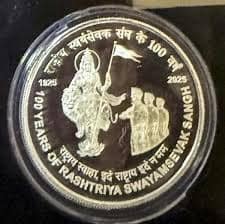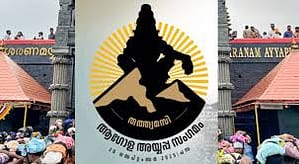The Supreme Court is currently hearing a PIL challenging the validity of SIR( Special Intensive Revision) electoral rolls in Bihar. It is a unique voter list verification process to ensure accurate, fraud-free elections through a comprehensive, physical voter validation process conducted door-to-door. Of course, no genuine Indian citizen should be excluded from the voters’ list at any cost.
Fifty-six lakh people across Bihar will be removed from the voter list after the Election Commission’s ‘special intensive revision’. The list of ‘unverified’ voters includes 20 lakh dead people, 28 lakh whose primary residence is now in another state (making them ineligible to vote in Bihar), and seven lakh registered in more than one place. An additional one lakh people on the current list cannot be contacted. Meanwhile, a further 15 lakh voters did not return verification forms, meaning they too are likely to find themselves struck off the roll when voting begins later this year.
The poll panel stated that around 52 lakh entries had been deleted, and last week, it was revealed that several registered ‘voters’ were from foreign countries, most of them from Bangladesh and Myanmar. Meanwhile, the re-verification of voters – a regular and constitutionally mandated exercise – has run into problems in Bihar because of the proximity of the exercise to the Assembly election. The opposition has criticised the timing and alleged it was orchestrated to eat into its voter base.
Challenges to the exercise were filed in the Supreme Court. The matter is being heard, and the court allowed the revision to continue for now, but it also asks questions about the timing. The court also directed the EC to ensure the process is completed, including the hearing and settling of appeals by people removed from the list, before the election. The apex court, however, rejected the contention that most people in Bihar lack the documents sought by the ECI as proof during the SIR. “This is a case of trust deficiency, that’s all,” Justice Kant observed. The judges also upheld the ECI’s stance that Aadhaar and voter ID cards cannot serve as conclusive proof of citizenship and must be supported by other documents. The draft roll was published on August 1, with the final list scheduled for release on September 30, amid Opposition allegations that the exercise will disenfranchise crores of eligible voters.
What This Means For the Bihar Election. The state has 243 constituencies. The exclusion of 56 lakh names from the voter list means an average of 23,045 voters per constituency will not be allowed to vote. The opposition has said that even a one per cent purge of names on the existing list of voters – a list used for the past 10 major elections in the state – would be unacceptable. For context, a one percent exclusion is around 7.9 lakh voters or about 3,251 voters per constituency. In the 2020 election, the opposition Rashtriya Janata Dal lost 52 seats by margins of 5,000 or fewer votes and 40 by margins of 3,500 or fewer. The RJD won 75 seats – the most by any one party – but still fell short of the halfway mark of 123 after its ally, the Congress, flopped. Combined, the RJD-led alliance won 110 seats. The political slugfest between the opposition RJD-Congress and the ruling BJP-JDU played out ferociously in the Bihar Assembly this afternoon, with the RJD’s Tejaswi Yadav and Chief Minister Nitish Kumar of the JDU leading their parties’ charge.
The government, citing inputs available with it, told the Rajya Sabha that there were around 2 crore Bangladeshi immigrants staying illegally in India. The rise in the number of illegal Bangladeshi immigrants, which almost equals the size of the entire population of Australia, shows a rise of around 67% over the 1.2 crore estimate given out by the UPA government in 2004, but withdrawn soon after. “There are reports of Bangladeshi nationals having entered the country without valid travel documents. Since entry of such Bangladeshi nationals into the country is clandestine and surreptitious, it is not possible to have accurate data of such Bangladeshi nationals living in the various parts of the country. As per available inputs, there are around 20 million (2 crore) illegal Bangladeshi migrants staying in India,” Union minister of state for home Kiren Rijiju said in a written reply to a question posed by Rajya Sabha MP Jharna Das Baidya. The 20 million estimate far surpasses the figure of 12 million cited by the then minister of state for home, Sriprakash Jaiswal, in 2004 in the same House. Jaiswal had, in reply to a question dated July 15, 2004, said that 1,20,53,950 illegal Bangladeshi migrants were residing in 17 states and Union territories as on December 31, 2001. He also said Assam alone accounted for 50 lakh Bangladeshi squatters, while their number in West Bengal was estimated to be the highest at 57 lakh. The latest figure in 2024 comes to the tune of infiltrated foreign nationals around 2.50 crores in various states of India. Unfortunately, various political parties and even the border government agencies have facilitated the infiltration for the sake of votes and money.
Illegal migration into Assam from Bangladesh has been posing a serious security threat to the identity of the Assamese people. It adversely affects the social, economic and political environment of Assam, creating law and order problems where immigrants are present in large number. The flow of immigrants started during the rule of the British and continued tills today due to the pull and push factors. The deportation of illegal migrants becomes difficult due to the lack of strong law and political will, as illegal migrants are used as a vote bank by different political parties. The data provided in the study indicates that if necessary steps are not taken immediately, Assam, the elder sister of North-East India, would lose its identity from the map of India very soon. The illegal migration is one of the major reasons for social and ethnic violence in Assam. As a matter of fact, lacs of Bengladeshis are infiltrated into South India also especially to Kerala, in the guise of Bengalis. Therefore, it is high time that India takes stringent measures against the illegal migrants who have become a real threat to the security of the country.















